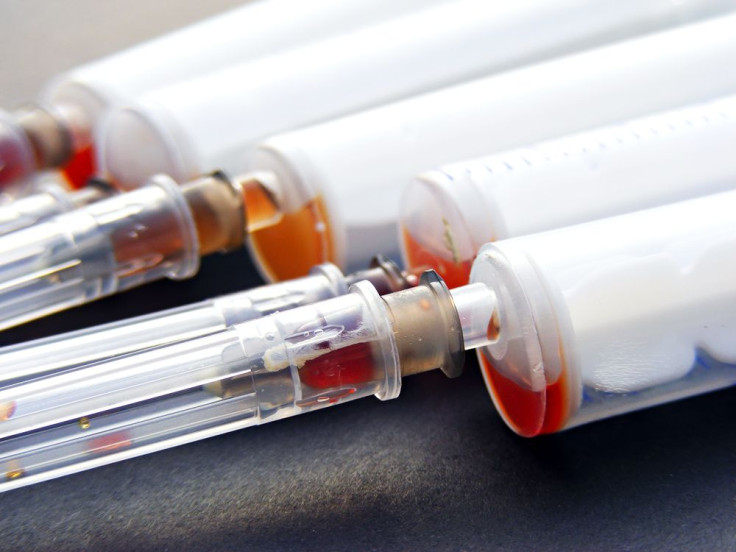
Groundbreaking new research has found that a shot can prevent and reduce the risk of acquiring HIV in people. The shot, which would need to be taken once every one to three months, is an experimental drug that has been tested on monkeys only. That said, in monkeys, the drug has protected the subjects from AIDS in two separate studies.
"This is the most exciting innovation in the field of HIV prevention that I've heard recently," said Dr. Robert Grant, an AIDS expert at the Gladstone Institutes, a foundation affiliated with the University of California, San Francisco, reports the Associated Press. "Both groups are showing 100 percent protection" with the drug, Grant said of the two groups of researchers. "If it works and proves to be safe, it would allow for HIV to be prevented with periodic injections, perhaps every three months."
The first study, conducted by researchers at the Centers for Disease Control and Prevention (CDC), gave six monkeys the drug every four weeks while exposing them to the virus twice a week. The monkeys given the shot had the same results as monkeys who were given Truvada, a pill that is currently used for HIV prevention. These findings, naturally, suggest that the injection could replace the pill or at the very least, provide an alternative to patients.
The second study, by the Aaron Diamond AIDS Research Center at Rockefeller University in New York, tested eight monkeys with the drug, exposing them to the virus on a weekly basis. Similar to the CDC study, the animals who took the drug were protected while the control group was quickly infected. A follow-up study was conducted to see how long the effects of the injection would last and the researchers discovered that a single shot protected the monkeys for an average of 10 weeks.
There has been some tremendous progress this year in terms of HIV cures, as scientists from South Africa disclosed recently that they have reportedly mapped the evolution of antibodies that kill HIV strains. According to the National Institute of Communicable Diseases (NICD), as published in the journal Nature, there are some antibodies produced by the human body that manage to kill the HIV virus and scientists have been able to identify and clone it.
"The outer covering of HIV has a coating of sugars that prevents antibodies from reaching the surface to neutralise the virus. In this patient, we found that her antibodies had 'long arms', which enabled them to reach through the sugar coat that protects HIV," Penny Moore, one of the lead scientists, said in a statement.
What's more, earlier this year, a new study from the German Research Centre for Environmental Health, in Munich, found that HIV treatments could be found in geranium plants. Specifically, the study finds that HIV-1 (there are two types of HIV: HIV-1 and HIV-2) can be prevented from invading human cells by being exposed to extracts of the geranium plant Pelargonium sidoides, which halts the virus from taking over by not allowing it to replicate. The researchers involved in the study found that geranium extract protects blood and immune cells from the infection by preventing the HIV particle from attaching to the human cells. Essentially, the plant extract can not only stop the virus from replicating but also stops the virus from invading a human cell.
© 2025 Latin Times. All rights reserved. Do not reproduce without permission.





